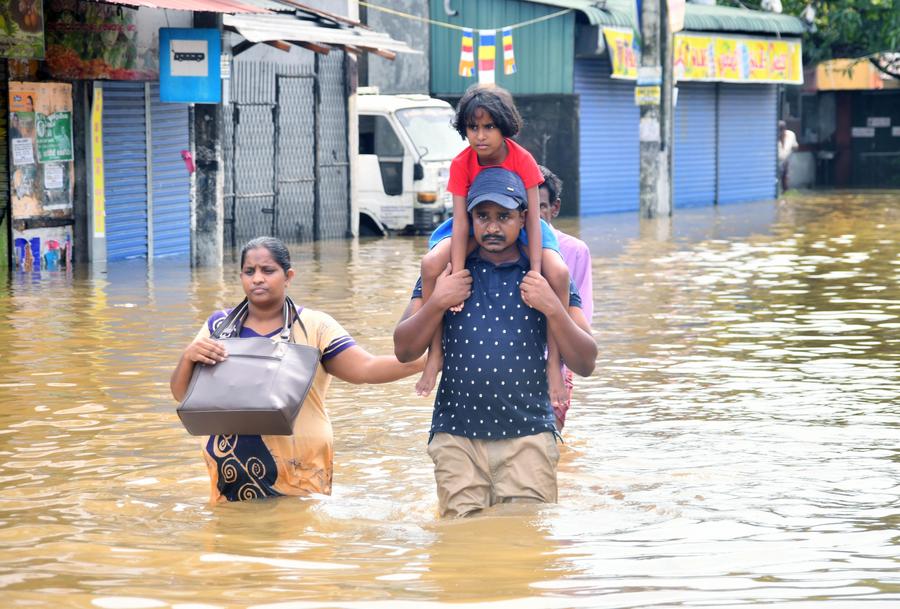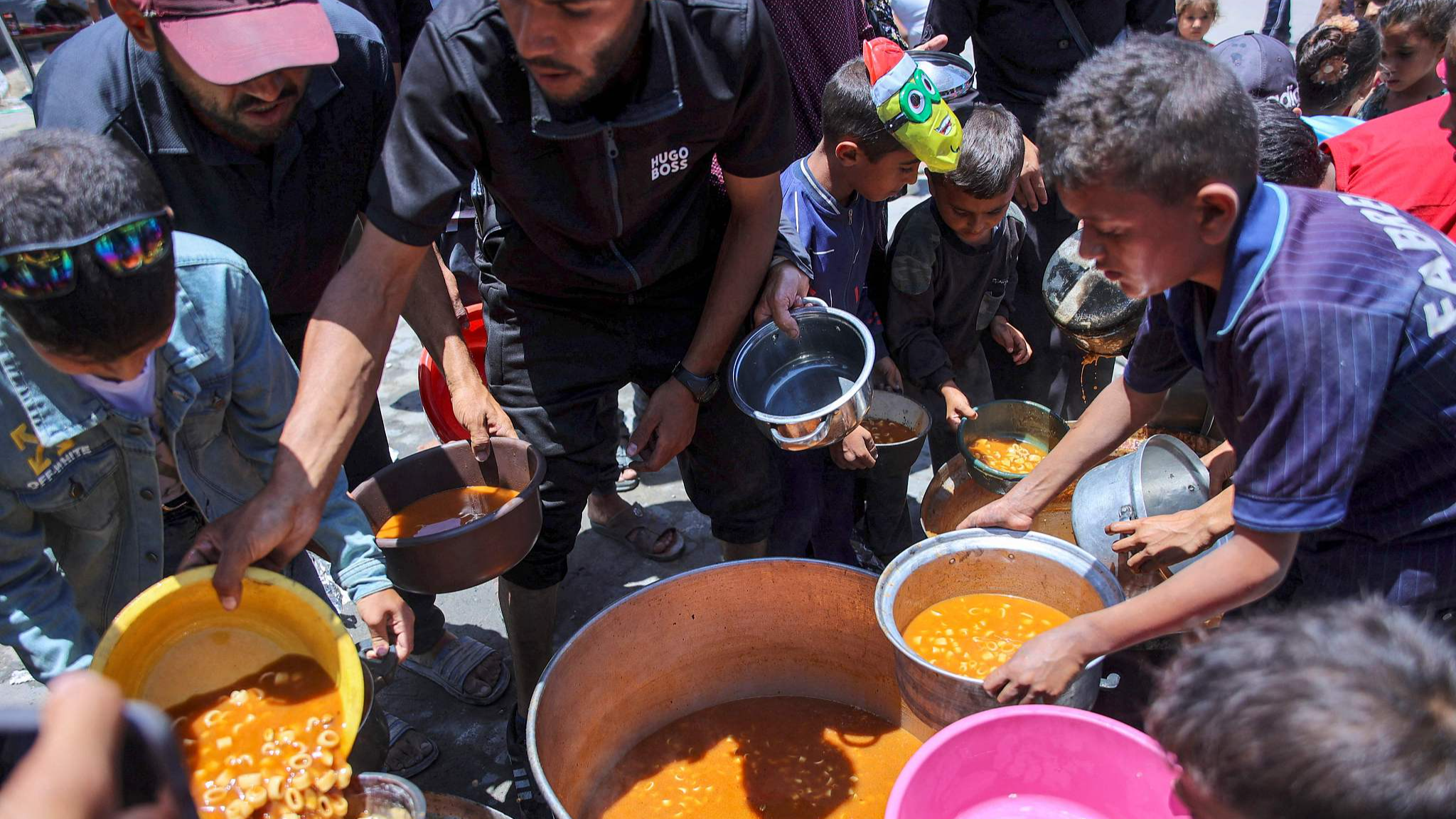UN Secretary-General Antonio Guterres in a video address marking World Environment Day on June 5 warned of “a climate hell.”
BEIJING, June 27 (Xinhua) — In recent years, there has been a noticeable increase in the frequency and intensity of extreme weather events worldwide, leading to significant repercussions for both human society and ecosystems.
WORLDWIDE HEATWAVES
Let’s first take a look at the occurrence of extreme heat events on a global scale. With scorching heatwaves and rampant wildfires, many regions around the world have recently been hit by sweltering temperatures, resulting in the deaths of thousands of people due to heat-related factors.
In Asia, India has experienced its longest-lasting heatwave on record this year. According to local meteorological authorities, since May 14, the capital city of New Delhi has seen temperatures exceeding 40 degrees Celsius continuously for 38 days. In states like Uttar Pradesh and Bihar, temperatures have reached around 50 degrees Celsius. The Indian Ministry of Health reports a total of 110 heat-related deaths and over 40,000 suspected cases of heatstroke from March 1 to June 18.
In the Gaza Strip, the ongoing high temperatures have intensified the plight of displaced Palestinians and led to a severe public health crisis.
Richard Peacock, an official responsible for overseeing health affairs in the Gaza Strip and the West Bank of the Jordan River, stated on June 21 that due to intensifying heat, the problems of water source pollution, food spoilage, and mosquito breeding have become more severe in the region. As a result, the number of diarrhea cases has increased 25 times compared to previous years.
Several European countries have also been hit by high temperatures. According to local media reports, Rome, the capital of Italy, and eight other cities such as Perugia issued red alerts for high temperatures on June 21, with temperatures in some cities expected to surpass 40 degrees Celsius. Relevant authorities have warned that the heat can have a significant impact on human health, particularly posing a risk to the elderly, children, and individuals with chronic illnesses.
In North America, the prolonged heatwave has resulted in wildfires at multiple locations across the western United States. Currently, nearly 20 large wildfires are burning in states such as New Mexico, California, Arizona, Colorado, and Washington. According to statistics, on June 20, approximately 100 million people in the United States were under high-temperature warnings and alerts.
EXCESSIVE RAINFALL
In addition to extreme heatwaves, there also have been changes in international and regional precipitation patterns, resulting in frequent heavy rainfall and floods, causing severe damage and loss of life. According to data from the United Nations Environment Programme, the frequency of global flooding has more than doubled in the past forty years.
Bangladesh has been experiencing heavy rainfall for days in a row this June, leading to a rise in the water levels of rivers. As a result, large areas of land in the northeast region have been submerged by floods, causing extensive damage to residential buildings, crops, and roads. According to data released by the local government in Sylhet district, at least 136 towns and villages have been affected by the floods, leaving over a million people affected.
The United Nations Children’s Fund (UNICEF) representative in Bangladesh said in a statement that the floods in the northeastern part of the country have affected 772,000 children, more than 810 public schools in the Sylhet region have been submerged, and nearly 500 schools are being used as temporary shelters.
In recent days, several countries in Latin America have also experienced heavy rainfall, leading to floods and landslides, and causing significant loss of life and property damage. Experts have pointed out that extreme weather events are becoming more frequent and intense, and the resulting natural disasters may have ripple effects.
EXTREME COLD WEATHER
Moreover, there is also a noticeable increase in global blizzards and extreme cold weather. According to data from the World Meteorological Organization, the rate of winter temperature increase in the Arctic region is more than twice the global average. This has led to a continuous reduction in Arctic sea ice, further exacerbating the deterioration of global climate warming. At the same time, blizzards and extreme cold weather have brought severe cold and heavy snowfall to regions such as North America, Europe, and Asia, causing significant impacts on transportation, power supply, and agricultural output.
GLOBAL WARMING, HUMAN ACTIVITIES BLAMED
So, why are global extreme weather events becoming more frequent and severe? Scientists widely believe that global warming is one of the main contributing factors. According to the report by the Intergovernmental Panel on Climate Change (IPCC), global temperatures have already risen by about one degree Celsius, and even if the goals of the Paris Agreement are achieved, global temperatures may still rise by more than two degrees Celsius. This global warming has led to instability in the climate system, making extreme weather events more frequent and intense.
Additionally, human activities are exacerbating the occurrence of global extreme weather events. Large-scale industrialization and excessive consumption of natural resources have resulted in the emission of large amounts of greenhouse gases, further intensifying the greenhouse effect on Earth. According to data from the International Energy Agency, global carbon dioxide emissions have continued to rise over the past decade, contributing to the occurrence of global warming and extreme weather events.
IMMEDIATE ACTIONS URGED
The weather and climate agency of the UN called for immediate actions to address climate change, pointing to the findings of a report which predicts a high likelihood of global temperatures surpassing a critical warming threshold. There is an 80-percent chance that annual average global temperatures will exceed the 1.5-degree Celsius warming mark in at least one of the next five years, according to the Global Annual to Decadal Update from the World Meteorological Organization (WMO). It is 86 percent likely that at least one year by 2028 will set a new temperature record, smashing the records set in 2023, the report added.
In the face of the challenges posed by global extreme weather events, international cooperation is needed. Reducing greenhouse gas emissions is key, and countries must enhance their endeavors in promoting sustainable development and the adoption of clean energy sources.
UN Secretary-General Antonio Guterres in a video address marking World Environment Day on June 5 warned of “a climate hell.”
“It’s climate crunch time,” he said, emphasizing that “the need for action is unprecedented but so is the opportunity — not just to deliver on climate, but on economic prosperity and sustainable development.”
“We are way off track to meet the goals set in the Paris Agreement,” said WMO Deputy Secretary-General Ko Barrett. “We must urgently do more to cut greenhouse gas emissions, or we will face increasingly high economic costs, millions of lives affected by extreme weather, and extensive damage to the environment and biodiversity.”
Source(s): Xinhua

 News3 days ago
News3 days ago
 News6 days ago
News6 days ago
 Sports6 days ago
Sports6 days ago
 News6 days ago
News6 days ago
 News6 days ago
News6 days ago
 Business5 days ago
Business5 days ago
 News6 days ago
News6 days ago
 World5 days ago
World5 days ago


















